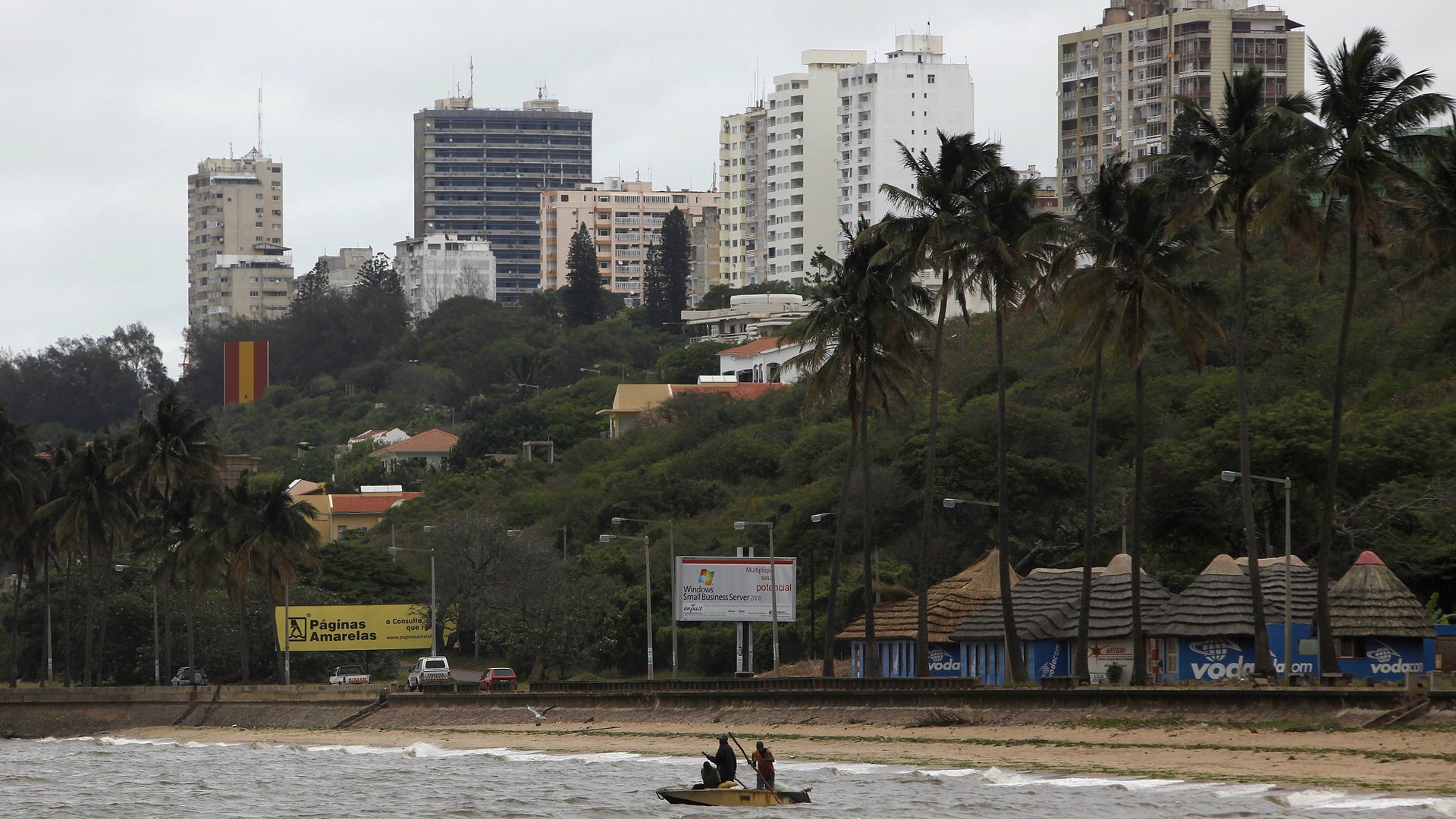Mozambique could lose hundreds of millions in funds over a hidden $1 billion debt
The International Monetary Fund has suspended aid and cancelled a trip to Mozambique, after revelations that the country has been hiding debt of about $1 billion.


The International Monetary Fund has suspended aid and cancelled a trip to Mozambique, after revelations that the country has been hiding debt of about $1 billion.
Mozambique’s prime minister Agostinho do Rosario travelled to Washington D.C. on Tuesday and confirmed the debts were not reported to the IMF, according to AIM, the national news agency.
While the finance minister previously dismissed the reports as “confusion,” the prime minister essentially admitted to failing to declare the hefty loans. The extent of Mozambique’s debt is still unclear. Last week, Mozambican finance minister Adriano Maleiane told journalists in Washington D.C. that Mozambique’s public debt was at $11 billion. Back home, his spokesman told state television that it was $8 billion, according to local reports.
Once buoyed by discoveries of natural gas deposits, Mozambique has now become high risk, and the yields on the bonds it took out to save state-owned companies have soared since the IMF’s announcement, according to Bloomberg.
“The undisclosed borrowing exceeds $1 billion and significantly changes our assessment of Mozambique’s macroeconomic outlook,” Anotionette Sayeh, director of the IMF’s Africa department said on Friday. The Mozambican government borrowed the money from Swiss multinational financial services firm Credit Suisse and the Russian VTB bank, she said. The IMF was tipped of by reports, later confirmed by the country’s finance minister.
Before the loans made headlines, the IMF approved a $282.9 million credit facility for Mozambique, with $117.9 million paid out in December to help the southern African government reduce poverty and preserve stability in the face of lower commodity prices, the IMF said in a statement on Dec. 18.
Praising Mozambique’s structural reforms, the IMF said that while the country’s per-capita income remained low, the economy remained robust with a projected medium term growth of more than 7%. The IMF did, however, warn that Mozambique needed an action plan to ensure the profitability of EMATUM, the state-owned fishing company, before it became a risk to the national budget.
Fishy business
That fishing company is now at the center of what is becoming a financial scandal. In 2013, global investors lent money to EMATUM to upgrade its tuna fishing fleet, only to learn that some of that money was diverted to build expensive military speedboats, according to a Wall Street Journal report (paywall).
In that same year, EMATUM made a loss of $25 million. Last year, the fishing company refused to hand over its books after numerous media requests, according to AIM. The country’s attorney general is now investigating the fishing company, and opposition parties have accused the ruling party of using it as a front to boost military spending, according to AIM.
Some reports suggest that the Mozambican government sold the bonds on an estimated catch of 200,000 tons of tuna worth $200 million, but that year a catch of only 6,000 tons was recorded.
Facing default, the Mozambican government restructured those bonds, due in 2020, to a longer term. It was only after a downgrade triggered further disclosures that bondholders—and then the IMF—learned that Mozambique had another loan, adding to it’s already strained debt burden.
In 2013 Credit Suisse and VTB lent $622 million to another state-owned company to purchase navy equipment, a loan which was later expanded to as much as $900 million, according to the WSJ. The bonds and loans amounted to least $1.47 billion in 2013 alone, representing a 25% increase on the roughly $6 billion national debt reported at the end of 2012, according to the WSJ report.
Credit Suisse declined to comment.